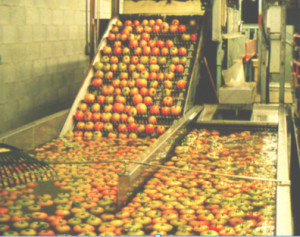A lot of folks in the food system are concerned about the potential for FDA’s Food Safety Modernization Act (FSMA), and associated rules, to negatively impact businesses. There’s been a bunch of rhetoric and uncertainty around the final rules and what will be needed to comply. The majority of the content of the proposed Produce and Preventive Controls Rules summarizes the industry’s best practices and lists the references behind decisions.
Not much in there that’s a surprise for folks who have been paying attention.
The focus of FSMA is on identifying hazards, putting steps in place to manage them and actually doing it. The best businesses are already doing this.
There are some specifics like manure incorporation and what a qualified individual is (who is supposed to be responsible for written plans) that need to be worked out. But employing practices and putting systems in place based on the best available science goes a long way in the absence of a regulation.
Back in the day when we were working with produce farmers and packers in Ontario (that’s in Canada) that’s what we tried to do – to stay ahead of the market requirements and regulation.
It’s not a unique approach – the almond industry took a similar path, so did Florida tomato growers and leafy greens producers in California and Arizona to some extent.
According to Lancaster Online, Pennsylvania farmers, through ag educators might be focusing on the uncertainty.
Ag educator Jeff Stoltzfus said he has learned a lot about food safety in the past five years.
But when it comes to the U.S. Food and Drug Administration’s efforts to overhaul food safety regulations, he’s still trying to figure out the impact it will have on the growers he works with.
“What we don’t know is more than what we do know,” he told a group of growers gathered recently at Yoder’s Restaurant for New Holland Vegetable Day.
Keeping good records, he said, could be the most important thing for growers to protect themselves in case a problem arises.
“Records are going to be very important and policies will be even more important, especially if you’re taking stuff from other growers.”
I disagree – actually employing the correct risk-reduction practices based would top my list. The documentation is nice and shows a regulator or a buyer that you know what you’re talking about – but doing it is more important.
